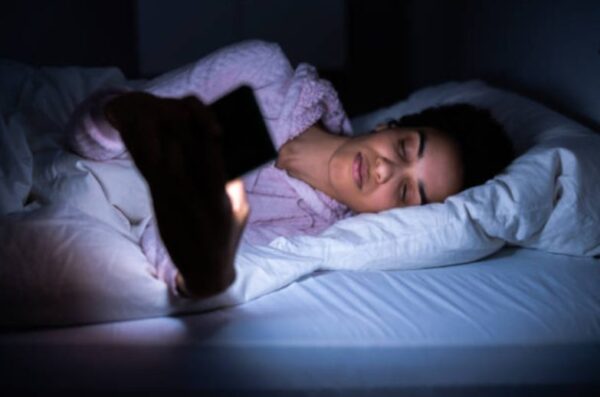Lifestyle
Stop using your phone as an alarm clock, here’s why

Many of us have developed the habit of using our phones as alarm clocks. It’s convenient, right?
After all, the phone is already on your nightstand, and it’s easy to set an alarm before bed. But what seems like a simple and harmless choice may actually be causing more harm than good.
Using your phone as an alarm clock can affect your sleep quality; it can also create a cycle of unhealthy habits like screen addiction, making it harder to start your day off right.
Here’s why you should ditch the phone alarm and switch to something better.
1. Blue light disrupts your sleep
One of the biggest problems with using your phone as an alarm clock is the blue light it emits. Blue light from screens can interfere with your body’s production of melatonin, the hormone that helps you fall asleep.
Even if you just glance at your phone before bed to set the alarm, that light can trick your brain into thinking it’s still daytime. This can make it harder to fall asleep and lead to restless nights, leaving you feeling tired the next day.
2. Temptation to check your phone
Let’s be honest: How many times have you gone to set your alarm and ended up scrolling through social media? When your phone is right by your bed, it’s tempting to check notifications, emails, or texts. This late-night phone use can keep your mind active when it should be winding down for sleep. You might find yourself stuck in a cycle of checking your phone “just one more time,” which can delay your sleep even more. Keeping your phone out of reach can help you avoid this distraction and focus on getting restful sleep.
3. Morning stress from notifications
Waking up to your phone can mean starting your day with a flood of notifications—texts, emails, social media alerts—all demanding your attention.
This can create unnecessary stress before you’ve even gotten out of bed. When you immediately dive into work emails or social media in the morning, it can leave you feeling overwhelmed or anxious. Instead of a peaceful, calm start to the day, you’re thrown into the chaos of the digital world. Using a regular alarm clock can help you avoid this early-morning stress and give you a chance to wake up at your own pace.
4. It affects your mental health
Constantly being connected to your phone, even during the night, can take a toll on your mental health. Phones keep our brains busy, making it harder to relax and unwind. Studies have shown that too much screen time, especially at night, can increase feelings of anxiety and depression. Giving yourself a break from your phone, especially during sleep hours, can help improve your mental well-being and mood.
5. You’ll sleep better without it
Switching to a traditional alarm clock may seem like a small change, but it can make a big difference in your sleep quality. Without the distraction of your phone, you’re more likely to fall asleep faster and stay asleep longer.
A regular alarm clock doesn’t emit blue light or tempt you to scroll through Instagram, so you can enjoy uninterrupted sleep.










